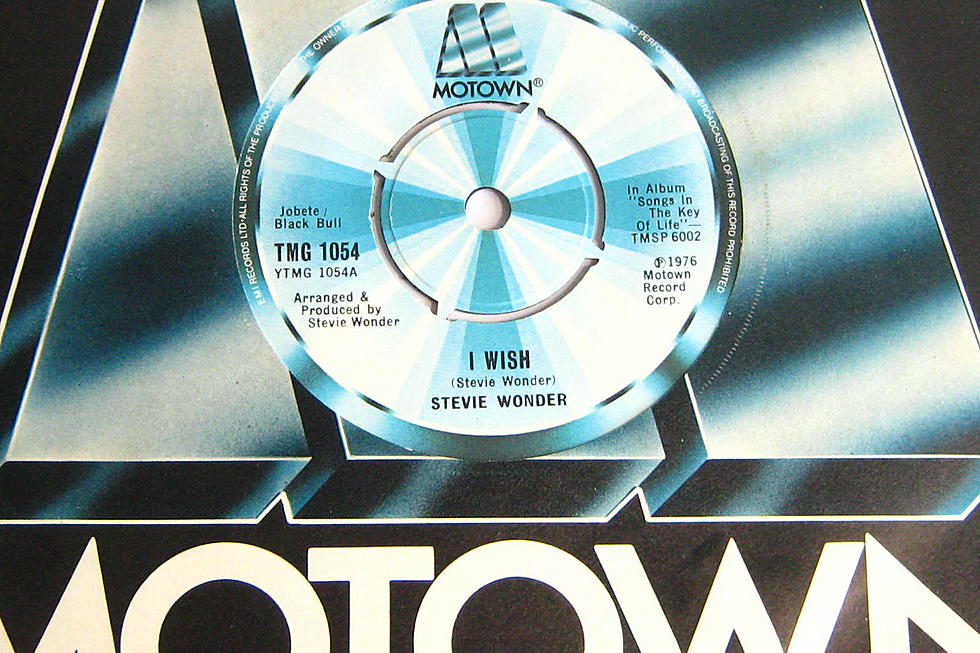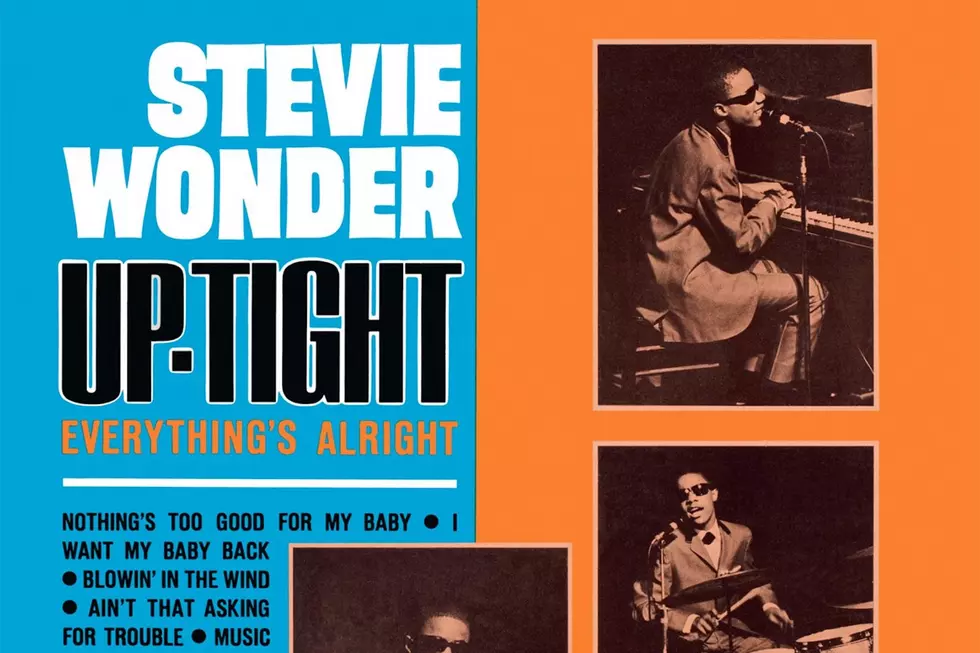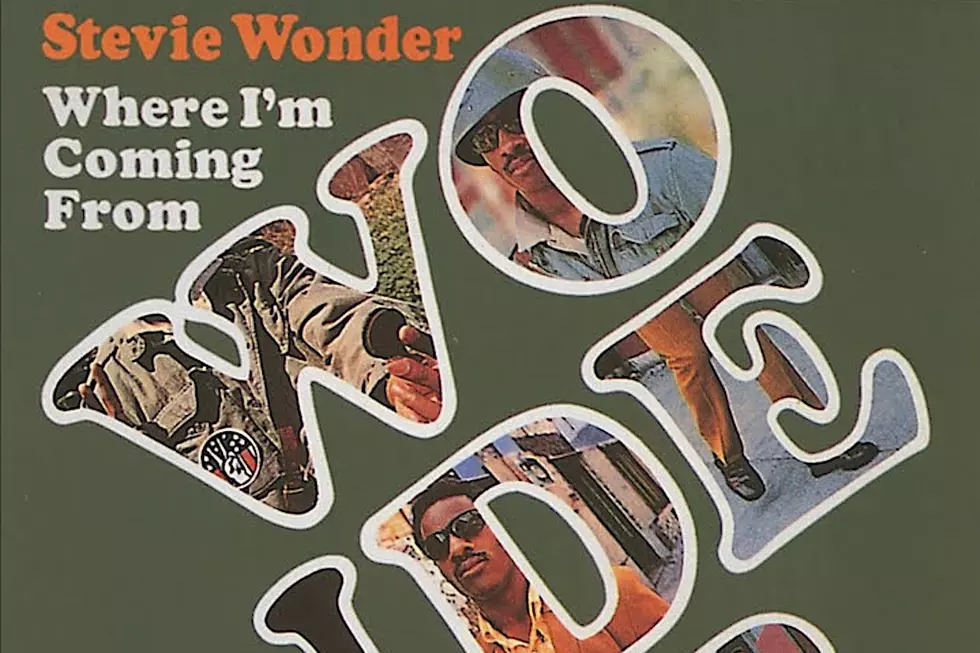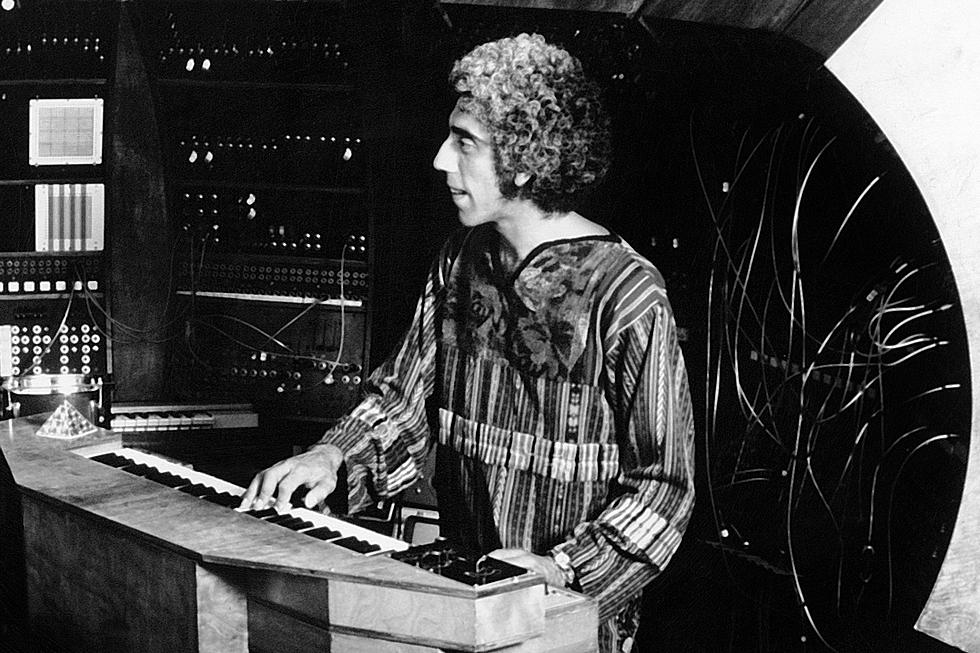
45 Years Ago: Stevie Wonder’s ‘I Wish’ Rides Funky Nostalgia to No. 1
Stevie Wonder was completing a lengthy journey when he hit No. 1 on Jan. 22, 1977 with "I Wish," his funky ode to the innocence of childhood.
As Fulfillingness' First Finale arrived in 1974, this 25-year-old new father had somehow released five albums over just 39 months – and 17 in all. He actually talked about a farewell concert, before reversing course and signing an unprecedented $13 million seven-album deal with Motown a year later.
But Songs in the Key of Life wouldn't be issued until the fall of 1976, as Wonder downshifted to meticulously craft what turned out to be his multi-disc masterpiece.
He took so long, in fact, that Motown printed up promotional T-shirts that said, "We're almost finished." Fans accustomed to new music on an annual basis were forced to cool their heels for some 26 months. "The phrase 'long-awaited album' might well have been coined for this one," Billboard sniffed.
"I want to give the public the latest feeling that I have experienced," Wonder said in a 1976 radio interview, "and I have to make sure I am completely satisfied with the material."
It was worth it. A process that involved herculean effort – "there were times," bassist Nathan Watts later confided, "when he'd stay in the studio 48 hours straight" – resulted in song after song after song after song. In the end, Wonder's next studio project couldn't be contained on two discs. Initial pressings also included an additional seven-inch EP.
Songs in the Key of Life was meant to be enjoyed as a unified experience. In keeping, there were no advance 45s, a modern staple of record promotion. "I Wish" wasn't released until months after the set hit store shelves – but this first single was actually one of the last things added to the track listing.
Listen to Stevie Wonder Perform 'I Wish'
Every detail of its creation was etched in Wonder's memory. "The day I wrote it was a Saturday, the day of a Motown picnic in the summer of '76," he later told Musician magazine. "God, I remember that because I was having this really bad toothache. It was ridiculous."
The setting drew Wonder back to simpler times. "I had such a good time at the picnic that I went to Crystal Recording Studio right afterward and the vibe came right to my mind – running at the picnic, the contests, we all participated," he added. "It was a lot of fun ... and from that came the 'I Wish' vibe."
The track came much easier than the lyrics, which – in keeping with some of the more serious topics found elsewhere on Songs in the Key of Life – initially touched on much broader topics.
Wonder began by trying to insert "a lot of cosmic type stuff, spiritual stuff. But I couldn’t do that 'cause the music was too much fun — the words didn’t have the fun of the track," he told Musician. He simply "couldn't come up with anything stronger than the chorus, 'I wish those days [claps] would [claps] come back once more.' Thank goodness we didn't change that."
Songs of remembrance like this one – and the Ellington tribute "Sir Duke," this album's next No. 1 – ultimately served as balancing elements among deeper thoughts on spirituality ("Have a Talk with God") and the sociopolitical ("Village Ghetto Land"). Having his sister Renee Haraway on hand likely helped loosen things up: She's the voice heard admonishing a young Stevie Wonder for a childhood prank.
He wasn't done tinkering, as sessions for the album ended up taking place at four separate studios – Los Angeles' Record Plant and Crystal Industries, New York's Hit Factory and the Record Plant in Sausalito, Calif. Each location had its own unique feel, and that impacted the songs: "You think of it as being a canvas on which I was able to draw and paint pictures," Wonder later mused.
This monumental vision had already been recognized long before "I Wish" was ever pressed as a single. Wonder earned album of the year honors at the Grammys a month after the song reached No. 1. (Songs in the Key of Life had already become just the third LP in history to debut at the top of the Billboard album charts.) "I Wish" just brought that genius to car radios and local jukeboxes.
Top 25 Soul Albums of the '70s
When Prince and Richard Marx Met
More From










